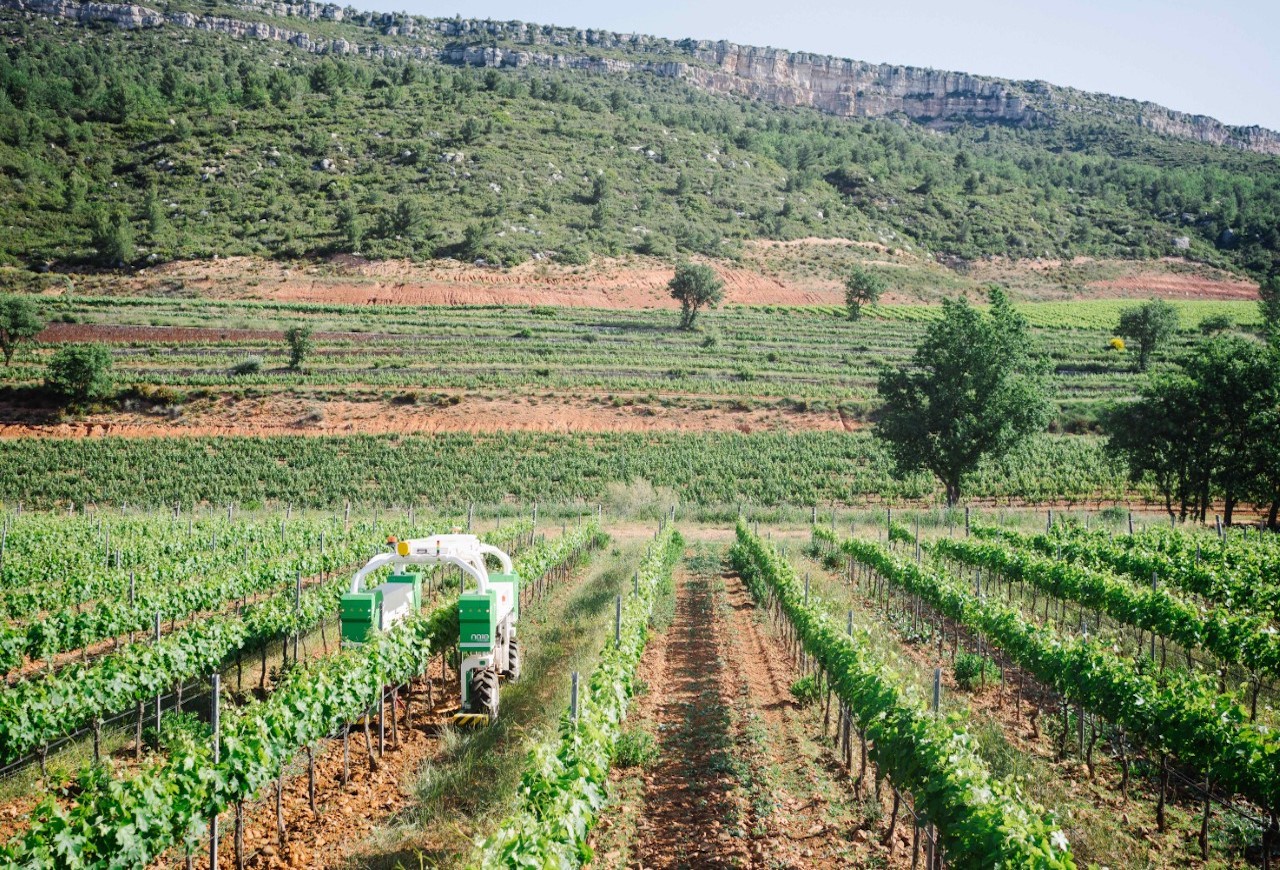Naϊo’s robots aim to reduce labour shortage, the physical strains of agricultural labour, combat soil erosion, reduce herbicide use and lower the CO2 emissions associated with farming

Naϊo Technologies, a French agricultural robotics firm, has raised $33m (€32m) in its latest fundraising round led by French impact investors Mirova.
Mirova, an affiliate of Natixis Investment Managers, which has invested in the company for the first time, was joined by existing shareholders, including ag-tech and food-tech investors Capagro, sustainable investors Demeter, impact investors Pymwymic, family office Codema and the Ecotechnologies Fund, managed on behalf of the French government by national investment bank Bpifrance as part of the France 2030 national recovery plan.
M Capital which has invested through the FEOO start-up investment fund financed by the Occitaine region of southern France and the European Investment Fund, and regional investors ARIS Occitaine also joined as new investors.
Naϊo Technologies, which launched in 2011, develops, manufactures and markets autonomous robots for agriculture to reduce labour shortage and the physical strains of agricultural labour, to combat soil erosion and to bring down the use of herbicides as well as the CO2 emissions associated with farming.
Marc Romano, head of the impact private equity team at Mirova, said they had invested in Naϊo Technologies through the €300m Mirova Environment Acceleration Capital fund, which targets companies with a proven technology and business model.
“Naϊo Technologies have demonstrated they have a proven technology but they need capital to accelerate their growth, which is why we came into this Series C fundraising,” he said.
Romano explained that agri-tech was one of the Mirova fund’s five verticals, which also include smart cities, clean energy, circular economy and natural resources and that investment in the sector was critical to food security in the face of the accelerating impacts of climate change.
“In Europe we are seeing a lot of innovation in the field of agri-tech. In fact, our first investment was in agri-tech company Ombrea, which specialises in climate control for crops,” he said. “ The droughts across Europe this year have underscored the critical need to invest in the transition towards more sustainable agricultural practices and to protect production levels, including by diversifying food production such as the development of alternative protein from insects.”
International expansion
The company has more than 300 robots in operation and trades in 20 different countries through a dealer network, primarily in Europe. In the US, where it has opened a subsidiary company based out of Salinas in California, the company operates by hiring the robots as a service.
Speaking to Impact Investor, Gaëtan Séverac, co-founder of Naϊo Technologies, explained that the company would primarily use the funds to strengthen its operations and expand to new countries, with the aim of doubling its sales of robots over the next two years.
“Because a lot of the technology used in our bots is mature, most of the current budget will be spent on our commercial development rather than on R&D and with demand increasing fast, on scaling our industrial production to keep up with our order book,” he said.
Séverac said plans for expansion over the next few years included into South America, Australia, Asia and Africa as well as extending its dealer network across regions.
“We’re seeing a lot of demand from Australia, particularly from vineyards but we also envisage demand coming from other regions of the world, including from Africa, which is expected to come under pressure from labour shortages in the future,” he added.
The company have also sold robots to universities in Romania, Slovakia and the US, including Cornell University in New York state, which are using the robots in research on effective weed management.
Impact in farming and winemaking
Séverac explained that the robots were lighter than tractors for use in weed management, causing minimal disturbance of the soil, and could get to work within a few days of it raining, when weeds are in the early stages of growth and close to the surface of the soil.
“Tractors have to wait four to five days longer than our robots to enter a field to avoid getting bogged down and disturbing the wet soil. Weeding early in the growth cycle is the best way to manage weeds, and being 100% electric powered, our robots use relatively little energy helping farms and vineyards to reduce their energy bills, while lowering their carbon footprint. The multiple passes that can be made by our robots also reduce the use of herbicides,” he said.
The firm currently has four robots in its range, which it has developed in close collaboration with both farmers and winegrowers, including two farming robots Oz and Orio, with the ability to carry out multiple tasks such as weeding , sowing seeds and hoeing, and two robots Ted and Jo, which have been specifically designed for weeding in vineyards.
Séverac explained the robots operated with an autoguiding system that uses GPS positioning with centimetre accuracy: “The trajectories or working lines used by the robots are calculated in the field or vineyard and approved either by Naio or the dealers with supervision of the work done remotely. The company is working towards full automation in the near future.”
Naïo’s clients include well-known names from the cognac and wine worlds such as Hennessy, Moet and Chandon and Château Labégorce, as well as large international seed producers such as German KWS and Struber and Dutch Bejo.
The use of some herbicides has come under significant scrutiny over recent years due to their potential links to birth defects, hormonal imbalances and cancer in humans as well as the potential detrimental impact from the use of herbicides on the environment and biodiversity.






